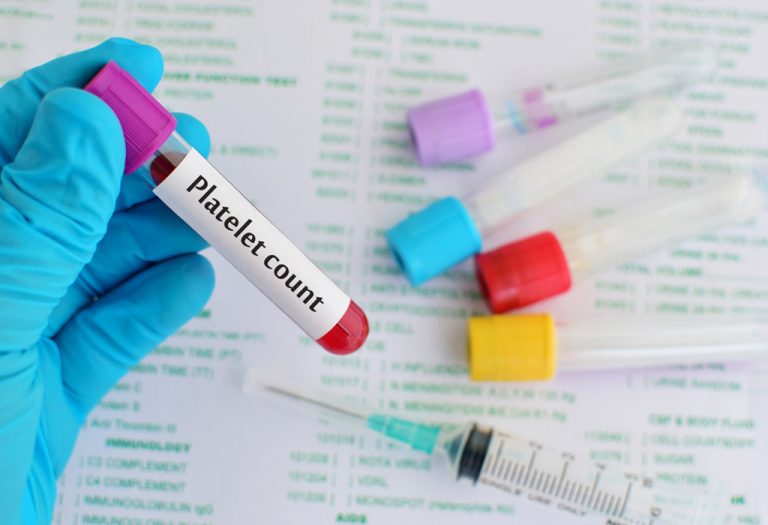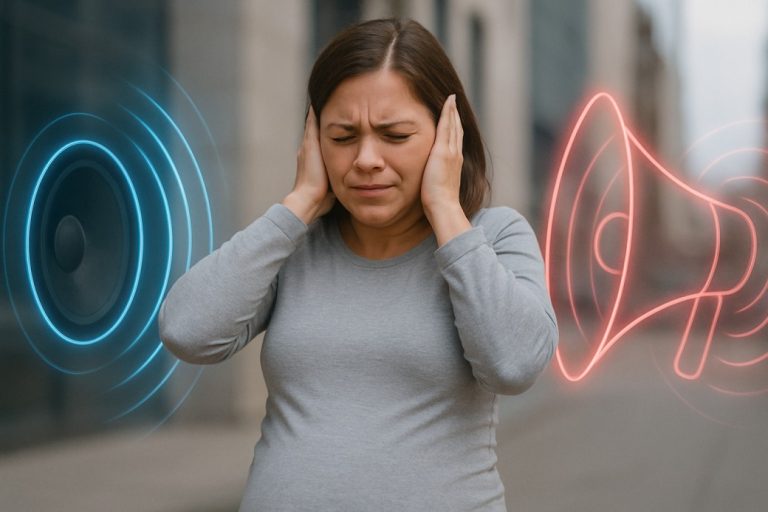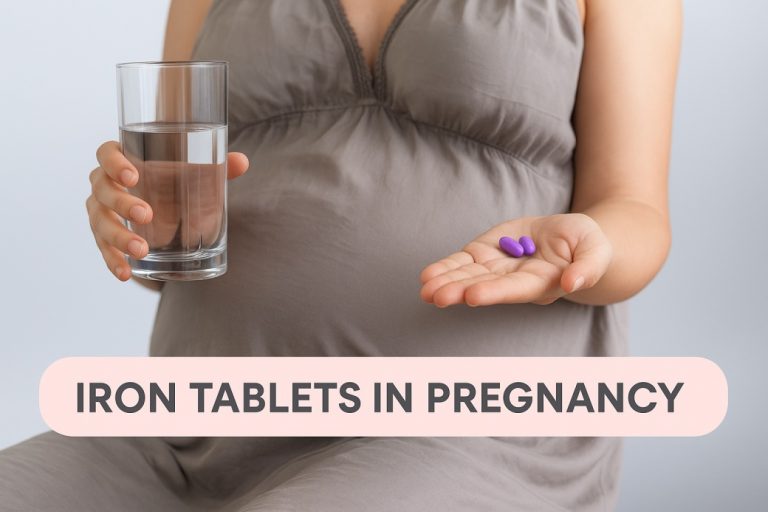Pregnancy Abortion Pills – How Does It Work, Side Effects & Risks
The world is constantly evolving; it wouldn’t be wrong to say that the approach to women’s rights is at the forefront of change. This includes the right to choose whether to have a child or not, in other words, being pro-choice. Regardless of where you stand on the issue of abortion, it is extremely important to understand how they work. Specifically, it is important to understand if abortion pills are safe, under what circumstances you use the pills and what your other options are. Abortion is a women’s right, yet there are several states and countries where abortion is illegal and unjudicial. Let’s begin with the article and find answers to all of your dilemmas.
What Is an Abortion Pill?
One of the most common and quick ways to successfully terminate a developing pregnancy is through prescription pills used for abortions, like misoprostol and mifepristone (1). These pills are commonly confused with a form of contraception called the ‘morning after pill.’ However, abortion pills are not a form of contraception and are different from the morning after pill which works to stop a pregnancy, whereas the abortion pill is used to end the pregnancy after an ovary has successfully been fertilized.
When You Can Take Abortion Pill?
Pregnancy termination by a pill can only be done provided the embryo is not developed enough; this means that the latest you can wait when using the pill is between 60-70 days; it is, however, recommended that you use this pill as early as possible. The earliest you can take a pill safely to abort the pregnancy is during the initial ten weeks of pregnancy and a week after your last menstrual cycle.
To terminate a pregnancy after 70 days, it is recommended that you consider a surgical abortion, this is because a pill may not be safe as the embryo is further along and this may complicate the abortion. To learn about the surgical option for abortion and what kind of abortion is right for you, please consult your personal medical specialist.
How Much Does the Pill Cost?
The costs of different types of abortion pills can vary extremely heavily; this depends on the brand of the pharmaceutical association. In India, the approximate range of these pills can range between 3000 to 5000 INR. The surgical procedure can cost a minimum of 30,000 INR and can go beyond 50,000 INR.
According to Planned Parenthood, the cost of abortion pills in the U.S. can cost up to $750 and it varies with state, while according to a 2018 study, the average cost of misoprostol or mifepristone sourced from online pharmaceutical websites can range from $110 to $360, including the shipping fee (2) (3).
Although medical abortion can be expensive, estimated up to $800, it is oftentimes less than expected. Health insurance can provide relief, and that, too, may vary.
Ensure you get your prescription. However, as pregnancy pills are not considered over-the-counter meds, for a clearer picture for an abortion pill price, please consult your medical professional.
How to Take Abortion Pills?
The system for taking abortion pills is extremely strict; first, doctors will ask you to sign waivers claiming that you are making this decision solely on your terms and the responsibility of the abortion is on you. Once this is done, the doctor will give you two pills that can take over the span of 3 days; both pills must be taken with the doctor present. Unlike most medications both these pills should not just be swallowed right away, insert the pill under your tongue and wait for it to naturally dissolve, this can take up to 30 minutes. Consult your doctor on the proper manner in which to consume this pill under their care.
In some cases, doctors may give you a vaginal pill; this is a pill that the doctor will insert into the vagina for the abortion; this works similarly to a rectal pill given to aid in curing constipation. During this time, you may face cramping and some bleeding; if this becomes excessive or lasts more than a day or two at most, consult your doctor immediately.
How Does the Abortion Pill Work?
A step-by-step guide to the abortion pill procedure is listed below:
- Sign the liability waiver.
- The first pill – Mifepristone: This pill is responsible for the blocking of progesterone, this is a critical pregnancy hormone. This pill ensures the uterus doesn’t recognize the presence of this hormone and that causes the uterus lining to break down, this halts the progress of the pregnancy by causing the embryo to break down. This pill must be taken in the presence of a doctor (4).
- The second pill – Misoprostol: This pill causes the uterus to contract and push out the developing embryo, embryonic sac and the uterus lining. This means it pushes out the embryo of the developing baby that is terminated by mifepristone. This process can cause severe cramping and heavy bleeding for a day or two. If it continues after, then please visit your closest ER.
- Visit the clinic: Once the pills have been consumed and a couple of weeks have passed visit your doctor, this is to ensure that the abortion was successful and that embryo is out of your system, if the embryo stays in your system post-abortion, it can cause infections that can result in permanent damage.
How Effective Is the Medical Abortion Pill?
It has been noted in a 2015 study that medical abortion through mifepristone and misoprostol at around 12 weeks or less usually ends the pregnancy 95 to 99% of the time (5). Another 2020 study resulted in the same (!). Self-managing abortion in the gestation of 9 weeks or less using both pills showed the same effectiveness as a clinician-supported abortion (6).
There is always a chance that the pill doesn’t work and you may have to opt for the surgical method, this, however, is not highly probable as the chances of the pill failing to terminate the developing embryo is a mere 4-6%.
If the combination pills are taken, then the success rate increases. However, if only misoprostol is taken, it can induce an abortion, though it won’t be that effective compared to the combination of both pills (7).
How Long Does it Take for an Abortion to Complete?
Although the pills can be taken over a couple of days, the entire process of the abortion culminates in a visit to the clinic where the doctor confirms the abortion can take up to 3 weeks. The first pill and second pill need to be taken a day or two apart. The abortion of the embryo from your system can take a few days, but doctors consider the process still incomplete as the exam required to confirm the abortion needs anywhere between 2-3 weeks after the second pill. Once the doctors clear you, the abortion is finally completed, and your body is safe from infection and other forms of danger.
What Are the Side Effects of an Abortion Pill?
Although there are numerous short-term side effects, the abortion pill side effects in the long term are rare, here are some side effects you may experience.
- Excessive bleeding (8)
- Dizziness
- Fever
- Infection
- Intense Cramping
- Mild Fever
- Chills
What Are the Risks of the Pill?
When taking the abortion pill, like any type of medication, there are a few risks involved; these are:
- Allergic reactions to the medication
- Heavy bleeding
- Blood clots in the urine stream
- Infection
- A failed abortion
What Precautions Do You Need to Take Before Taking the Abortion Pill?
Like a lot of medical procedures, there are some precautions to take before taking the abortion pill; these are:
- Avoid alcohol 72 hours before taking the pill and for 3 weeks after taking the pill.
- Avoid the use of any unprescribed narcotics or drugs; these include medications that the doctors don’t clear.
- Consult your doctor and have an emergency plan ready if needed.
- Ensure you get all your tests done.
- Ensure the pregnancy is in the window for the pill to work.
- Make sure you understand all the risks involved with the abortion by talking to the doctors in detail.
- Do not eat or drink anything when taking the pill and for 30 minutes after taking it.
FAQs
1. Where can you get the abortion pill?
You cannot get an abortion pill over the counter, and this is because it is considered a prescription drug and can only be given to a consumer with a doctor’s prescription. Furthermore, when considering how to get an abortion pill, it is important to remember that legally, you cannot take the pill unless a doctor is present; as such, in most cases, the doctor may dispense the drug themselves to ensure control over the allocation of the drug so it may not be abused.
2. What about getting pregnant in the future?
The risks of an abortion pill affecting future pregnancies are minimal but existent; it is recommended that you talk to a doctor to understand the complete risks of future pregnancies being affected by the pill.
3. Can the effects of the pill be reversed after it has been taken?
Unfortunately, once the pill has been taken, it is impossible to reverse its effects. Learn about all your available options before choosing abortion. Understand the risks and finality of abortion and consult your partner before choosing to terminate your child. After the abortion, it is highly recommended that you follow your doctor’s guidelines for post-abortion care. Do not miss your appointments for follow-ups, and ensure you discuss your fears and address them before taking the pill. Remember, the decision to have an abortion is not a light one, it can cause trauma psychologically as well, please consult a therapist after the abortion to fight off depression.
4. Where can I buy an abortion pill?
Abortion pills must be taken in specific doses and duration as prescribed by the doctor. These can be bought from a doctor, nurse, online or offline pharmacies, and health clinics (9).
5. Are abortion pills safe to use in states where abortion is banned?
Although the U.S. Food and Drug Administration approves abortion medication, it is quite unclear at present whether the states ban the use of approved abortion pills if they have abortion restrictions (1). It is best to consult your doctor and get personalised guidance over the legality and restrictions.
According to a 2020 study, the rate of self-medical abortion (SMA) has steeped high outside of the healthcare system among Americans in the recent times. In fact, almost over half of total abortions in the European countries and the United States are medical abortions (10).
6. Who should avoid taking abortion pill?
Women with an ectopic pregnancy, chronic adrenal failure, blood clotting disorder, intolerance or allergy to mifepristone or misoprostol, long-term use of steroid medicines, or inherited porphyrias, which is a rare blood disorder, should avoid medical abortion. Personalised consultation with the doctor is advised.
You should not take abortion pills if have an intrauterine device in place. You need to get it removed before taking the abortion pills.
Having an abortion should never be forced on a woman. Remember, this is your body and your choice, always enforce your rights to either have or abort the child. Forcing an abortion or forcing a woman to keep the child against her will is illegal and a criminal offence. It is also extremely dangerous for their body.
References/Resources:
1. What are abortion pills and are they safe?; National Capital Poison Center; https://www.poison.org/articles/what-are-abortion-pills
2. How much does the abortion pill cost?; Planned Parenthood; https://www.plannedparenthood.org/learn/abortion/the-abortion-pill/how-much-does-abortion-pill-cost
3. Murtagh. C, Wells. E, et al.; Exploring the feasibility of obtaining mifepristone and misoprostol from the internet; Contraception; PubMed; https://pubmed.ncbi.nlm.nih.gov/29030227/; April 2018
4. Autry. B. M, Wadhwa. R; Mifepristone; StatPearls Publishing; https://www.ncbi.nlm.nih.gov/books/NBK557612/
5. Gatter. M, Cleland. K, Nucatola. D. L; Efficacy and safety of medical abortion using mifepristone and buccal misoprostol through 63 days; Contraception.; PubMed; https://pubmed.ncbi.nlm.nih.gov/25592080/; April 2015
6. Moseson. H, et al.; Effectiveness of self-managed medication abortion with accompaniment support in Argentina and Nigeria (SAFE): a prospective, observational cohort study and non-inferiority analysis with historical controls; The Lancet Global Health; https://www.thelancet.com/journals/langlo/article/PIIS2214-109X(21)00461-7/fulltext; January 2022
7. Medication Abortion Up to 70 Days of Gestation; ACOG; https://www.acog.org/clinical/clinical-guidance/practice-bulletin/articles/2020/10/medication-abortion-up-to-70-days-of-gestation; October 2020
8. Rath. S, Mishra. S, et al.; Analysis of Complications and Management After Self-Administration of Medical Termination of Pregnancy Pills; Cureus.; PubMed Central; https://www.ncbi.nlm.nih.gov/pmc/articles/PMC8684582/; November 2021
9. How do I get the abortion pill?; Planned Parenthood; https://www.plannedparenthood.org/learn/abortion/the-abortion-pill/how-do-i-get-the-abortion-pill
10. Ralph. L, Foster. D. G, et al.; Prevalence of Self-Managed Abortion Among Women of Reproductive Age in the United States; JAMA Netw Open.; PubMed; https://pubmed.ncbi.nlm.nih.gov/33337493/; December 2020
Also Read:
Threatened Abortion
Pregnancy After Abortion
Easy Ways of Natural Abortion
How To Terminate Pregnancy After 1 Month
Medical Abortion: Types, Complications & Side Effects
Was This Article Helpful?
Parenting is a huge responsibility, for you as a caregiver, but also for us as a parenting content platform. We understand that and take our responsibility of creating credible content seriously. FirstCry Parenting articles are written and published only after extensive research using factually sound references to deliver quality content that is accurate, validated by experts, and completely reliable. To understand how we go about creating content that is credible, read our editorial policy here.



































